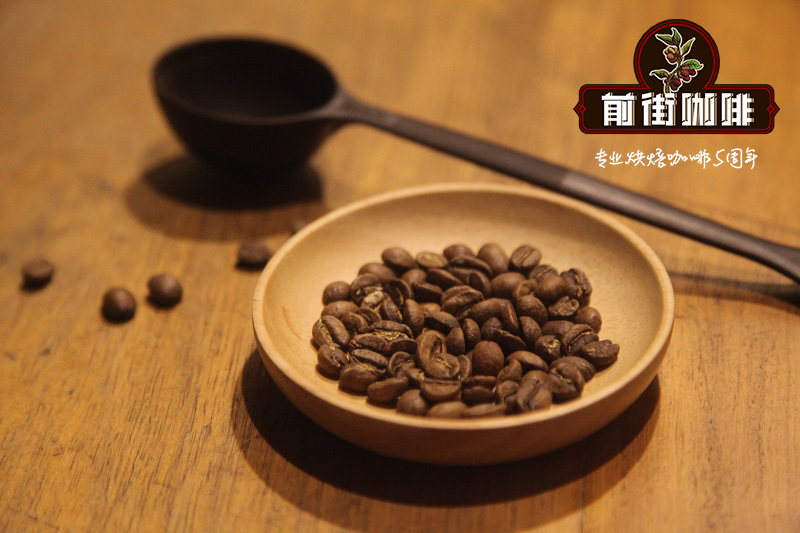The characteristics of coffee producing areas in Africa are different from those imagined. The origin of coffee beans in Kenya should not be underestimated.

Professional coffee knowledge exchange more coffee bean information please follow the coffee workshop (Wechat official account cafe_style)
Qianjie-Kenyan Coffee introduction
Kenya's main coffee producing areas are surrounded by the country's highest mountain, Mount Kenya, which is the second highest peak in Africa after Mount Kilimanjaro, and many plantations have good elevations. the diurnal temperature difference at high altitude helps to prolong the coffee ripening cycle and gather flavor substances, and beans are planted at an altitude of 1800m. Kenyan coffee is highly recognizable and is famous for its bright and complex berry and fruit flavors, with sweet flavors and dense acidity.
Bean seed
Kenyans attach great importance to coffee science, and many farmers have highly professional knowledge of production, as we have chosen SL-28,SL-34 (all Arabica species). The two coffee beans, which use code names, are from the Scott lab (SL stands for laboratory acronym). The laboratory has been employed by the Kenyan government since the 1930s, and the two varieties are two of the 40 planned varieties, which account for the majority of Kenyan high-quality coffee and are grown in large quantities in major producing areas.
Grading
Grading is very important for agricultural products, and unified standards can be used to provide a basis for different levels of product pricing. This requires public power to devote energy to the formulation and implementation of its standards. Kenya's grading principle is according to the size of beans, the common boutique coffee grades on the market are AA (size higher than 18mm or 7.22mm), AB (16 mesh or 6.80mm combined with 15 mesh or 6.20mm), PB (adzuki bean, which means that only one stone grows in the coffee fruit), and beans in this issue are AA grade.
Production and marketing resume
The traceability of products is another important yardstick for standardized management of agricultural products. In Kenya, coffee is grown by large estates or small farmers, and the resumes of large estates are easier to trace, but who is responsible for the quality of coffee from small farmers? The raw coffee bean processing plant plays this role. Since the processing of raw coffee beans is a labor-intensive and energy-intensive industry, small farmers usually do not have the processing capacity. They will bring their raw beans to the treatment plant for unified treatment. The beans processed by the processing plant will be classified and entered into the auction market in Nairobi, the capital, for auction.
In short: Qianjie is a coffee research hall, happy to share the knowledge about coffee with you, we share unreservedly just to make more friends fall in love with coffee, and there will be three low-discount coffee activities every month. The reason is that Qianjie wants to make more friends drink the best coffee at the lowest price, which has been Qianjie's tenet for 6 years!
END
Important Notice :
前街咖啡 FrontStreet Coffee has moved to new addredd:
FrontStreet Coffee Address: 315,Donghua East Road,GuangZhou
Tel:020 38364473
- Prev

The coffee bean producing area of Africa is so worshipped by the Kenyan coffee beans, the implication of love in the Garden of Eden.
Professional coffee knowledge exchange more coffee bean information please follow the coffee workshop (Wechat official account cafe_style) front street-Kenya Coffee introduction Kenya coffee is mostly grown at an altitude of 1500Murray 2100m and is harvested twice a year. Its main feature is a distinct fruit aroma, the common fruit aroma is citrus. Kenyan coffee has a multi-layered taste and the acidity of juice.
- Next

What are the characteristics of coffee beans in Africa? the flavor of Kenyan coffee beans can be thrown away from milk tea.
Professional coffee knowledge exchange more coffee bean information please follow the coffee workshop (Wechat official account cafe_style) front street-Kenya Coffee introduction Coffee industry insiders all think that Kenyan coffee is one of its favorite products, this is because Kenyan coffee contains every feeling we want from a good cup of coffee. It has a wonderful and satisfying aroma.
Related
- Beginners will see the "Coffee pull flower" guide!
- What is the difference between ice blog purified milk and ordinary milk coffee?
- Why is the Philippines the largest producer of crops in Liberia?
- For coffee extraction, should the fine powder be retained?
- How does extracted espresso fill pressed powder? How much strength does it take to press the powder?
- How to make jasmine cold extract coffee? Is the jasmine + latte good?
- Will this little toy really make the coffee taste better? How does Lily Drip affect coffee extraction?
- Will the action of slapping the filter cup also affect coffee extraction?
- What's the difference between powder-to-water ratio and powder-to-liquid ratio?
- What is the Ethiopian local species? What does it have to do with Heirloom native species?

